Photo: Rosie Cohe
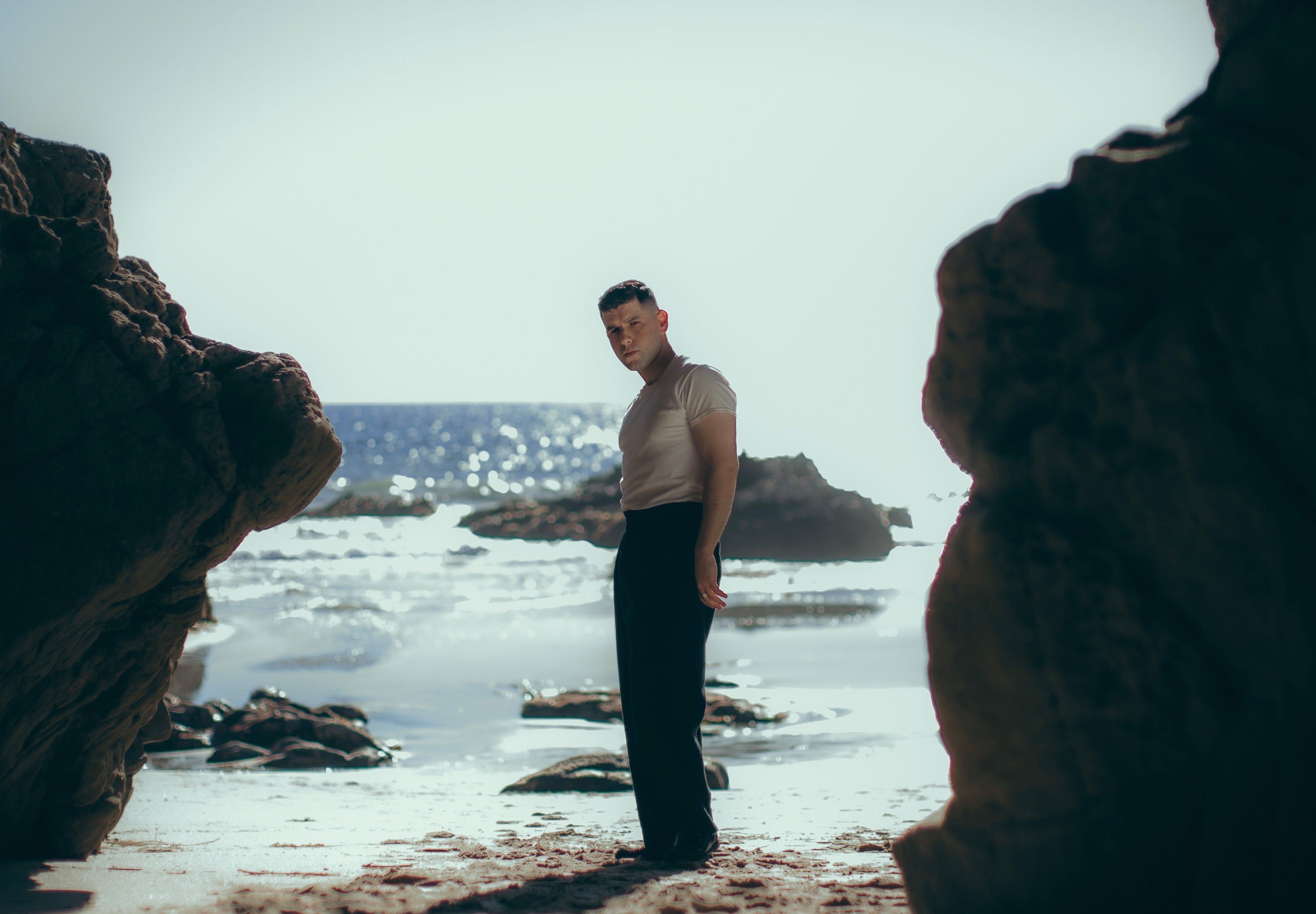
interview
Aaron Frazer Dives 'Into The Blue': How His New Album Goes Further Beneath The Surface Than Ever Before
The singer, songwriter and drummer with Durand Jones & the Indications discusses his new sophomore solo album. The result of many big life changes, 'Into The Blue' sees Frazer digging into a broader range of influence and emotion.
If Aaron Frazer had not wound up singing and playing drums with the soul outfit Durand Jones & the Indications, or on his own solo records, he suspects he may have ended up working as a music history teacher.
"My favorite classes in college were music history. Even something I knew already, like the history of rock and roll, those are songs your dad probably played, but hearing it through the lens of somebody who truly loves it and looks at you and says, ‘Isn’t this amazing?’ that stirs something up in you," says Frazer.
Unfortunately for his would-be music students, Frazer did decide to make music. He started making hip-hop beats in high school, then learned to play the drums and studied music engineering at Indiana University, where he met the musicians who would form Durand Jones & the Indications in 2012. The quintet have released three studio albums (and one live record) of R&B, soul, and disco, each of which open with a statement of political consciousness.
It was in the early days of the Indications that Frazer learned he could do more than play drums and write songs: he had an innate ability to sing in the upper-range falsetto — an extremely useful tool in soul ballads. Arguably, Frazer's delicate lead on the Indications' 2017 single "Is It Any Wonder?" helped popularize the group.
Frazer released a solo album in 2021, fittingly titled Introducing…, produced by the Black Keys' Dan Auerbach. With ample amounts of his signature falsetto, the debut is rooted in pure, sweet soul that could easily be mistaken for a recording from the '60s. Interspersed throughout his songs are bouncy bass lines, flourishes of horns, strings, organ and piano, funky guitar patterns, and backing vocals. Lyrics tell earnest stories of love, breakups, disappointment, loneliness, and joy.
Frazer's second solo album arrives June 28. Into The Blue features some of his trademark sweet soul sounds, and adds in inspiration from the Spaghetti Western film scores of Ennio Morricone, the lush jazz-rock recordings of David Axelrod, and late-90s hip-hop from artists like Nas and Jay-Z.
Into The Blue is a collaboration with GRAMMY-winning producer Alex Goose, known for his crate-digging samples and collaborations with artists like Brockhampton and Madlib. Goose and Frazer have a shared love of the tension that many hip-hop songs create by rigging disparate elements together.
Similarly, Into The Blue combines cinematic string sections, breakbeats, and tambourines with driving bass lines, fuzz guitar, iPhone recordings and one-take vocals, and added a range of samples, including the '90s R&B group Hi-Five. Frazer’s love of hip-hop is evident in the beats: if you were to isolate the drumming on many of his tracks, they could easily lay the bedrock for an MC to rhyme over.
Frazer recently spoke with GRAMMY.com about creating Into The Blue, his experiences with the Indications, working with Dan Auerbach, and his new life on the West Coast.
What inspired the new sounds you’re exploring in ‘Into The Blue’?
There were multiple changes in my life. My relationship of five years came to an end, and I moved across the country by myself from New York to Los Angeles.
Durand Jones and The Indications had just finished an insane year of touring. We had spent seven or 10 months on the road. No more partner, no more band, and I was in a new city where I didn’t know many people. I was heading into the unknown, literally and emotionally, that was the feeling of the album.
What sound were you aiming for?
I’m a student of so many genres of music. So sonically, I’m always on a quest to bring all my influences together seamlessly and authentically, and I believe I’ve done that. It’s rooted in classics but [sounds] contemporary.
It’s soul music, and falsetto-driven, but with a country Western influence I’ve liked since high school, like Mississippi John Hurt, and gospel and disco, and always hip-hop. Hip-hop has been in my DNA since high school; I wanted to partner with a hip-hop producer to bring that DNA to the forefront.
How did you combine those specific musical elements?
The construction of the album took a ton of work, but I think all of the influences blend together and it really makes sense. If you listen to Ennio Morricone and David Axelrod, they both have these cinematic string arrangements and operatic vocals, but the drums are like MPC fodder — like proto hip-hop.
With Morricone, you hear the bass and it’s heavy. You hear the grimiest timpani drum sound. That is RZA all day. In hip-hop, they rely on samples, and they end up in conversation with so many records. It’s like chutes and ladders short cuts but with a homebase of cohesion.
How did you first get into hip-hop, and how exactly does it appeal to you?
I was probably 10 when I first heard hip-hop. In high school I started making beats on Fruity Loops. I loved Will Smith’s "Big Willie Style" and Jay-Z's "Hard Knock Life." "Annie" is the softest s— ever, but he put this pocket behind it. It moved me, and lit my brain up.
In high school I drummed for a musical production of Annie, and when we got to "Hard Knock Life," of course I started playing the Jay-Z version. The teacher was like, "Can you not do that?"
You got into sound engineering at Indiana University. What attracted you to that work?
At that time I didn't have any sort of music theory background. I thought about majoring in percussion, but I’m not a classical music guy and I’m not a jazz drummer. I grew up listening to rock and hip-hop. Meg White and Questlove were my heroes, so I wasn’t shaped for the conservatory. I just wanted to make beats. My parents suggested I learn the practical side of things so I could get a job, so I was like okay, let me do this and figure it out.
The Indications guys were classmates in the recording program. We started out making rock and roll, but we bonded over Dilla’s "Donuts," and the Jerry Butler "Just Because I Really Love You" sample pulled on our heartstrings. We geeked out on that, and then we met Durand [Jones], and that was the first time I could bring all my influences together. We were rowdy but soulful.
Is that around the same time you started singing a lot of falsetto vocals?
I discovered I could sing falsetto when I made a scratch vocal track for Durand. It was far enough removed from my own speaking voice that I could hear it as its own instrument, and it just felt like me for the first time. It’s been my signature style ever since.
In the last few years, I’ve figured out ways to incorporate both registers of my voice. I didn't grow up singing, so it’s still an adventure to learn that instrument.
How did Durand Jones & The Indications impact your life?
They are family. We have been through so much together. We traveled the world together. We put in so many hours on the road, and so many miles, and we got through it together. It’s not easy to tour, to get in the trenches and get in a van. Being able to grind it out together and grow together, being a part of a band that writes and produces together.
Now I think about us like the Avengers. There’s a main story line, and you create a universe around it, and everyone has their own worlds and universes. Right now I’m drumming on [keyboardist] Steve Okonsky’s jazz record, and Okonsky is playing bass on my record. I produced a record with a Durand on vocals.
It’s important to have a place you can go and learn from each other and collaborate, and also have a place to go on your own. We all are eclectic, I don’t think we’ll ever run out of interesting avenues to explore.
Dan Auerbach produced your first solo album, 'Introducing…' in 2021. What did you learn from that experience?
We were writing three or four songs a day, and we wrote the record in a week. We were blasting through songs. Dan accesses and celebrates first instinct and intuitiveness. You do two sessions a day, and you come out with a song per session.
On the new record, I tinkered for hours over some moments, but many moments just happened. On the song "The Fool," we used iPhone files. You can hear the drummer say "play it again," just like a demo. It had magic to it. We tracked it again, but the voice memo had a looseness to it, and I gave myself permission to use something that wasn’t perfect.
"Perfect Stranger" was a one-take vocal. I could have auto-tuned it, but wanted it to sound like I was on the edge of tears, and about to lose it, which I was. Dan gives himself that same permission to embrace spontaneity.
You and producer Alex Goose experimented with samples on this new album. How so?
This record is fusing my childhood artistic self with the artist I’ve grown into. The first beat I ever made, I didn’t have production software. I had a CD compilation of jazz, put it in my tower computer, opened up Windows Movie Maker, dragged the audio in there and moved it around. That was one of my first experiences making my own music and looping. I wanted to bring that vibe back. One of the things that makes hip hop sound the way it does, is the tension created by rigging disparate elements together.
Recorded with different rooms, preamps, and signals creates an amalgamation that you can’t get when everyone is playing in the same room. We recorded stuff in different places and stack those recordings on top of each other, so it feels hip hop even though it's not. When people hear this record, they might wonder if they’re hearing samples.
What challenges popped up making this record?
When I first started, after moving to L.A., I was having trouble writing lyrics. I felt sad and heartbroken and lonely. At a certain point, a friend convinced me not to fight it, and just write about what I was feeling. As soon as I did, songs started to flow.
I’m a private person, but audiences today expect you to share all details of your life. There’s no backstage options for artists now. It required me to be vulnerable, and remember the good things about my relationship and show people the giddiness and excitement of a new relationship. The challenges were more emotional than musical.
You’ve performed on shows like "The Tonight Show" and "CBS Saturday Morning." You have more than 4.8 million monthly listeners on Spotify. How does it feel to know your music is reaching so many people?
It is wild. I think a lot about how lucky I am, knowing how many people in the world put out music every day on Spotify or Soundcloud or YouTube. It’s insane. I’m incredibly fortunate to reach people and talk to people about my records.
You have to work really hard and be really good but there’s also an element of luck. I try to help my bandmates and friends and also give people I don’t know a platform, tell my fans about them, and bring people on tour.
With the exception of college in the Midwest, you’ve always lived on the East Coast. How’s the West Coast treating you?
It’s definitely a cultural adjustment. I moved here because that’s where the culture lives. Soul music kind of fell by the wayside for a few decades, but now there’s a revival. The communities that kept that music precious and safe and alive and thriving were on the West Coast, from S.F. to L.A. and Phoenix, and San Antonio. That’s where this culture is alive, so I wanted to go and experience that, and see what doors open.
I miss the subway and public transit. I miss my midnight honey turkey sandwich from the bodega, but L.A. has shown me so much love. It’s crazy to see all the lowrider, Chicano soul bands out here.
When the Indications first started, we made our music in a basement, not a bar. We weren’t entertaining people, so it was a soft, sweet soul, and it really touched a nerve. That style has exploded. It’s cool to know that we had a hand in shaping this movement.
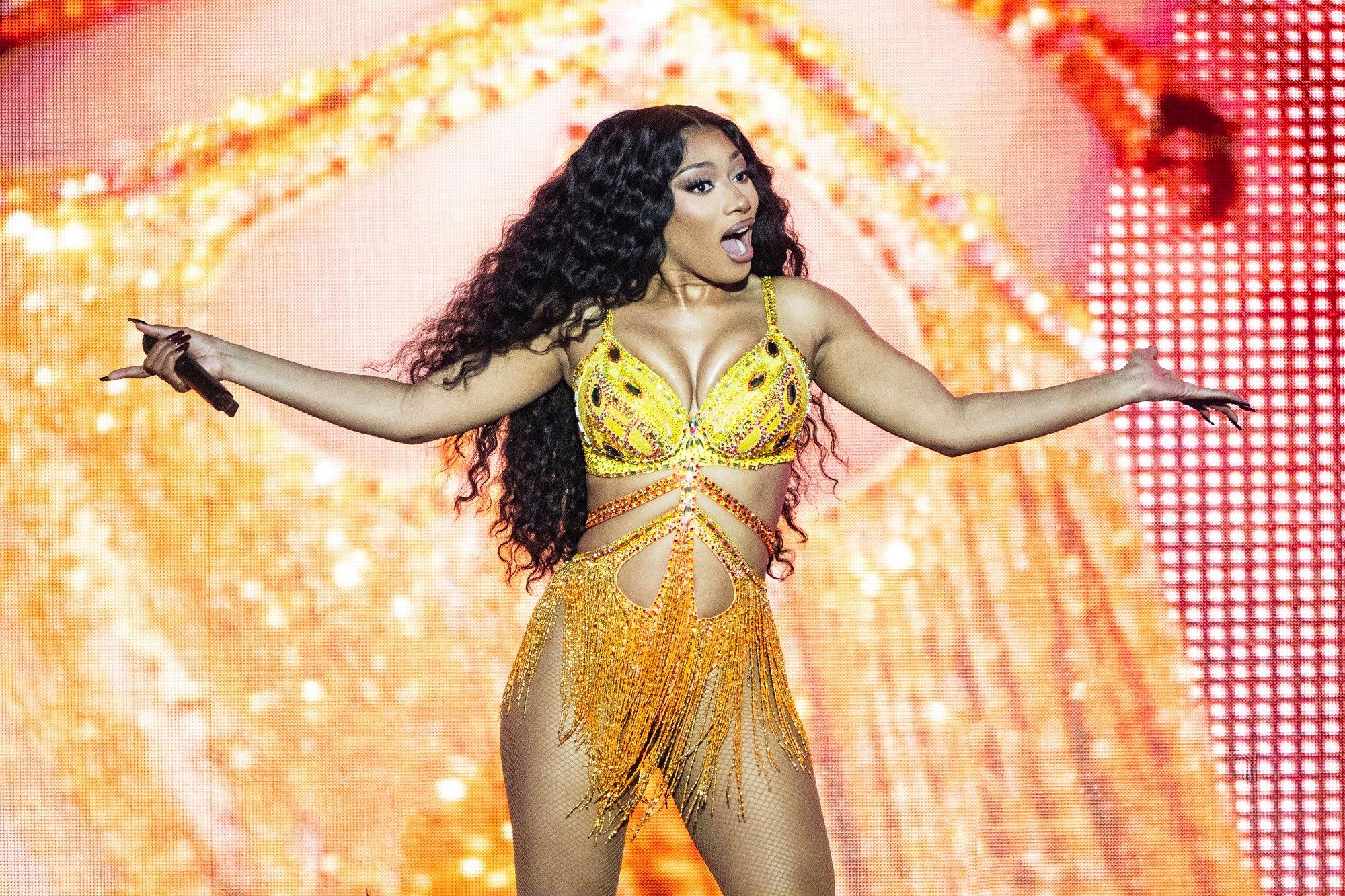
Photo: Erika Goldring/Getty Images
list
6 Takeaways From Megan Thee Stallion's 'Megan': Snakes, Shots & Self-Assurance
From the serpentine theme to Japanese rhyme schemes, Megan Thee Stallion's third album snatches back her own narrative and isn't afraid to take a bite.
Beware of venom: Megan Thee Stallion is not biting her tongue on her new album, simply titled Megan.
The GRAMMY winner's first full-length release in two years is also the first to drop under her own control. Fans have been ready for this release even before the first single, "Cobra," came out in November. The second single, "Hiss," followed in January and brought the star her first No. 1 hit on the Billboard’s Hot 100 and Global 200 charts. These songs, as well as the third single, "BOA," foreshadowed a certain slithery theme that helped shape the album.
Megan was released on June 28 and features guest stars such as GloRilla, Victoria Monét, Big K.R.I.T. and Kyle Richh as well as her longtime ace producers like Juicy J (who made "Hot Girl Summer" among other calling cards) and LilJuMadeDaBeat, who produced Stallion anthems like "Big Ole Freak," "Body" and "Thot S—."
Here’s what we learned from listening and vibing to the latest work by three-time GRAMMY winner Megan Thee Stallion.
A Theme Snakes Through Megan
As could have easily been predicted from the first three singles "Cobra," "Hiss" and "BOA," and now the album track "Rattle," there is a hint of a snake theme that wends its way through the album from beginning ("Hiss") to end ("Cobra").
In several songs, she denounces all the snake behavior that she has encountered from former lovers, friends, and haters who support those who have caused actual harm to her. In the music video for "Cobra," Megan literally sheds her old skin to reveal a shining new layer.
Megan Is Calling The Shots This Time
"I feel like Biggie, 'Who Shot Ya?’/But everybody know who shot me, bitch/ So now, let’s stop speaking on the topic," she rapped in "Who Me (feat. Pooh Shiesty)" off her 2022 album Traumazine. MTS was referencing the July 2020 incident in which rapper Tory Lanez shot her in the foot, and was subsequently charged with assault with a semiautomatic firearm and carrying a loaded, unregistered firearm in a vehicle.
Turns out, she wasn’t done referencing the topic. Now, she’s one taking the shots. MTS takes aim at less-talented women rappers on "Figueroa" (named for a Los Angeles street known for prostitution), and at Lanez on "Rattle," when she suggests that his male supporters should schedule a conjugal visit with him in prison. (Lanez is currently serving a 10-year sentence while simultaneously going through a divorce with wife Raina Chassagne.)
More Megan Thee Stallion News & Videos
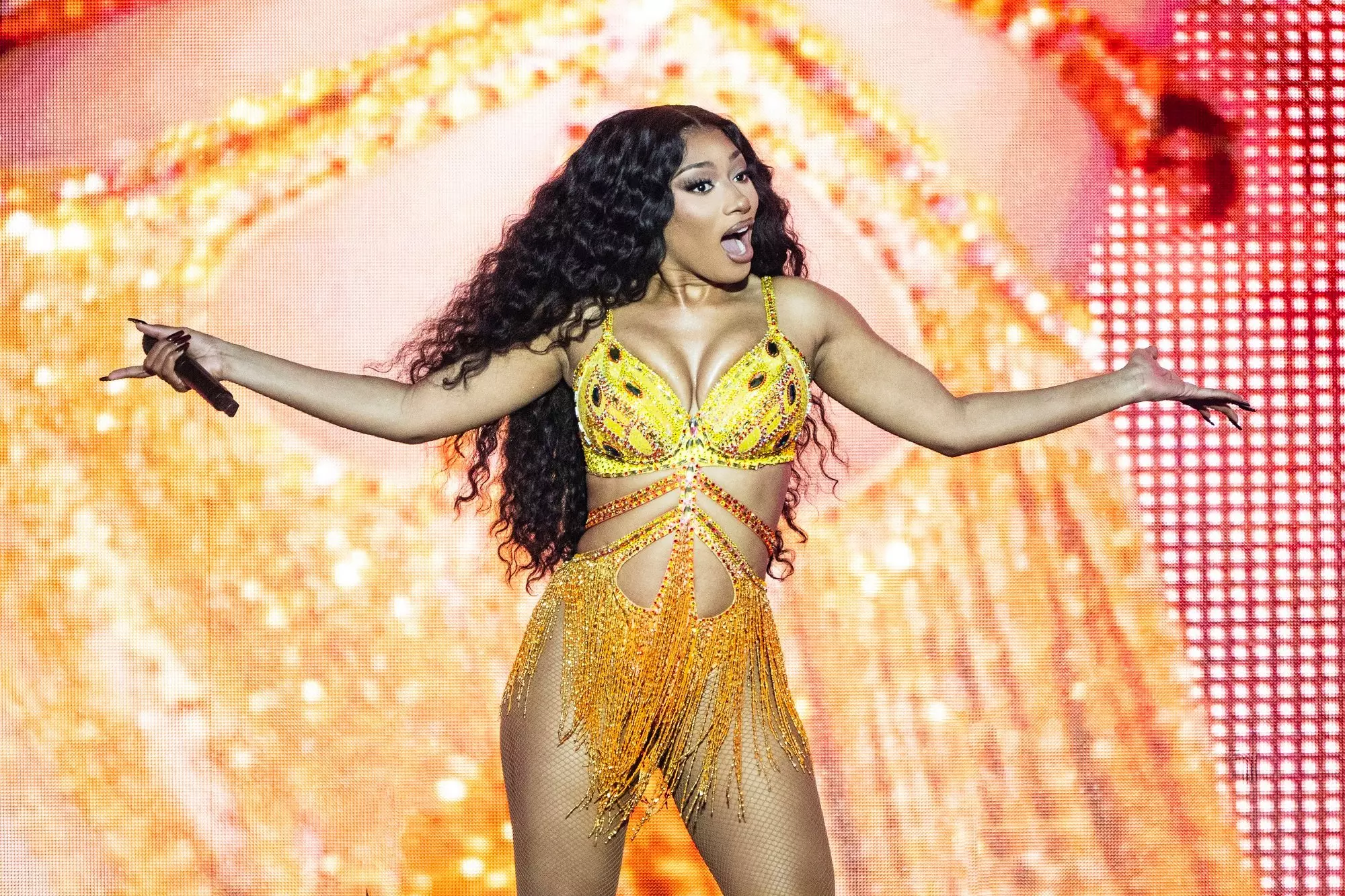
6 Takeaways From Megan Thee Stallion's 'Megan': Snakes, Shots & Self-Assurance
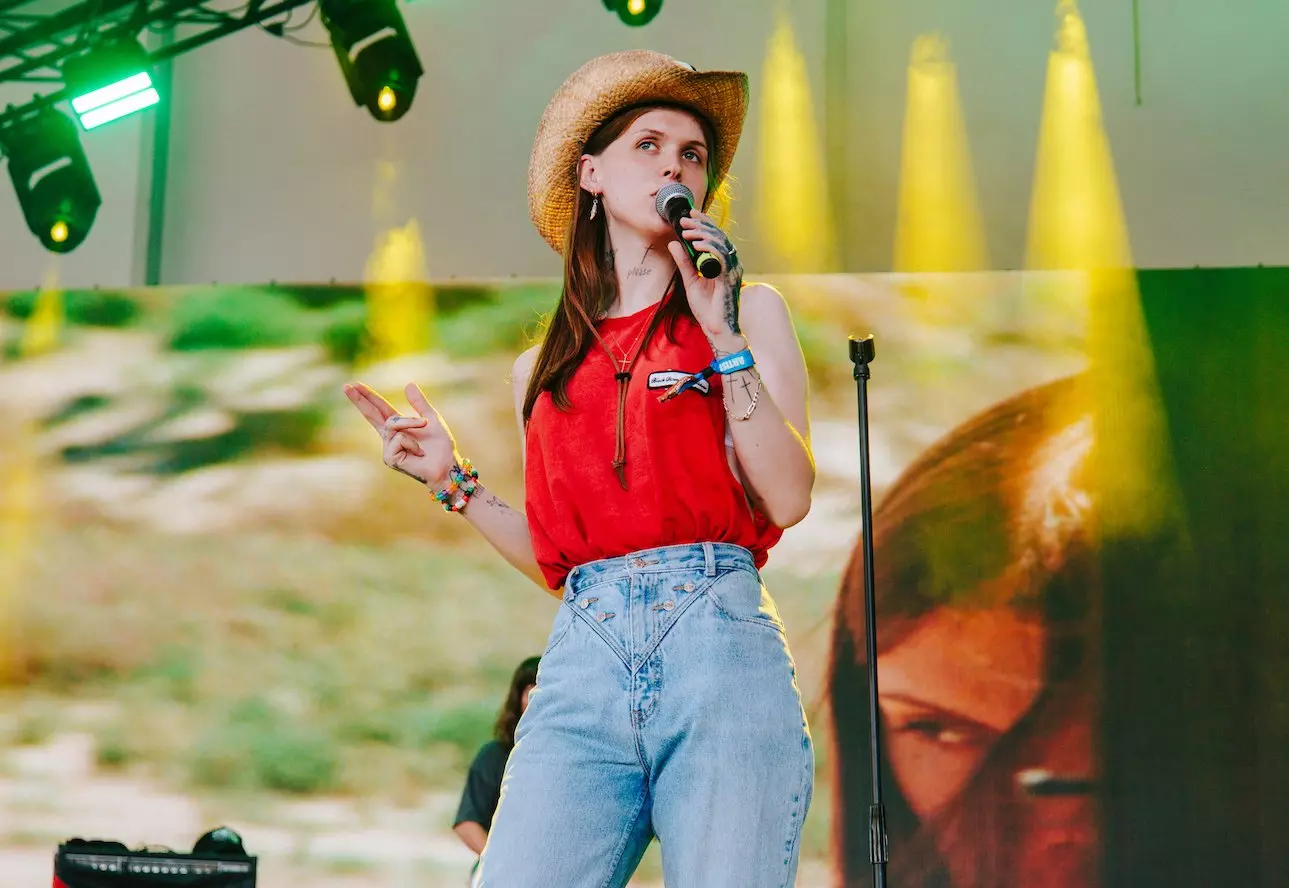
9 Epic Sets From Bonnaroo 2024: Ethel Cain, Melanie Martinez, Megan Thee Stallion & More
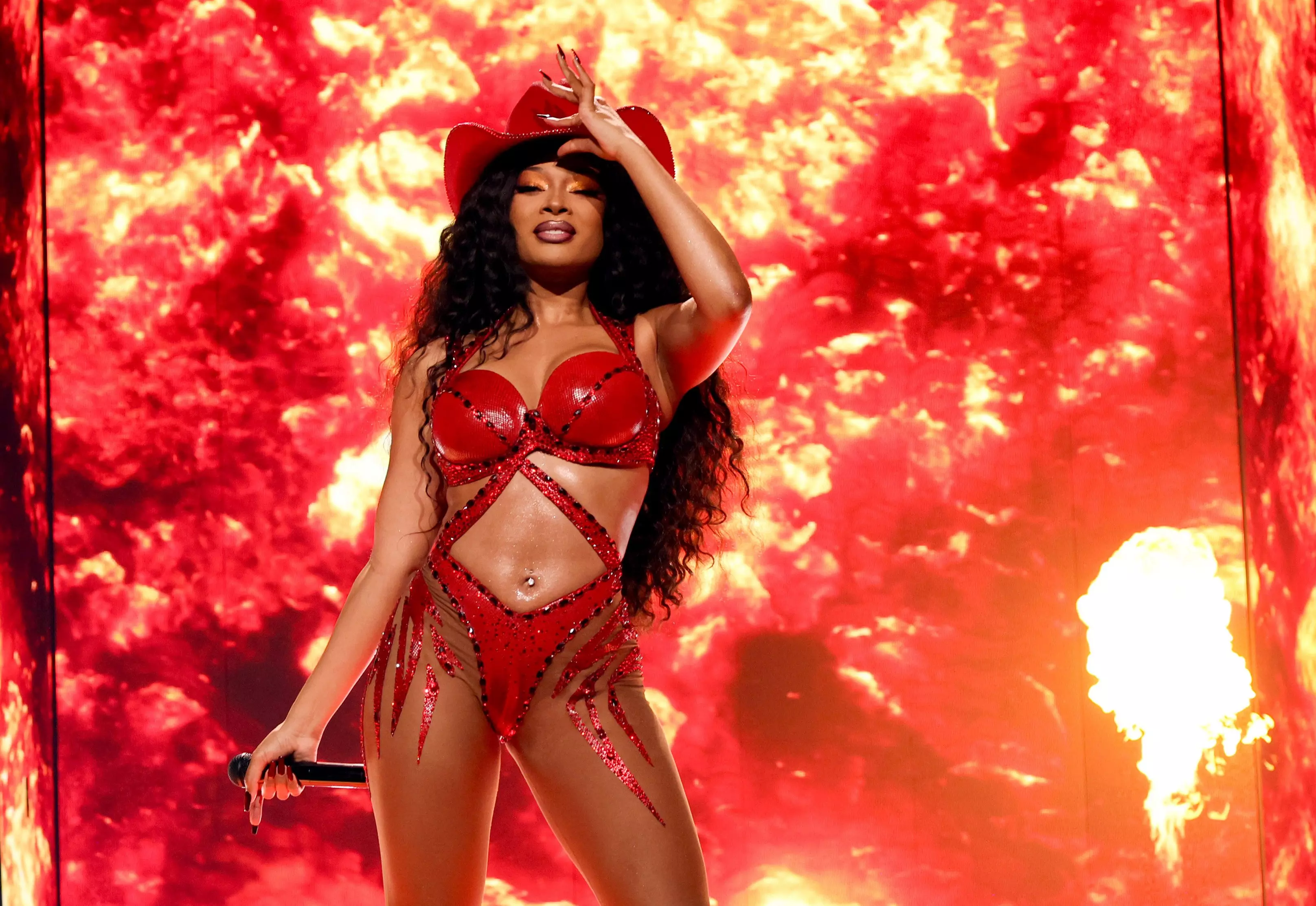
5 Iconic Moments From Megan Thee Stallion's Houston Hometown Shows
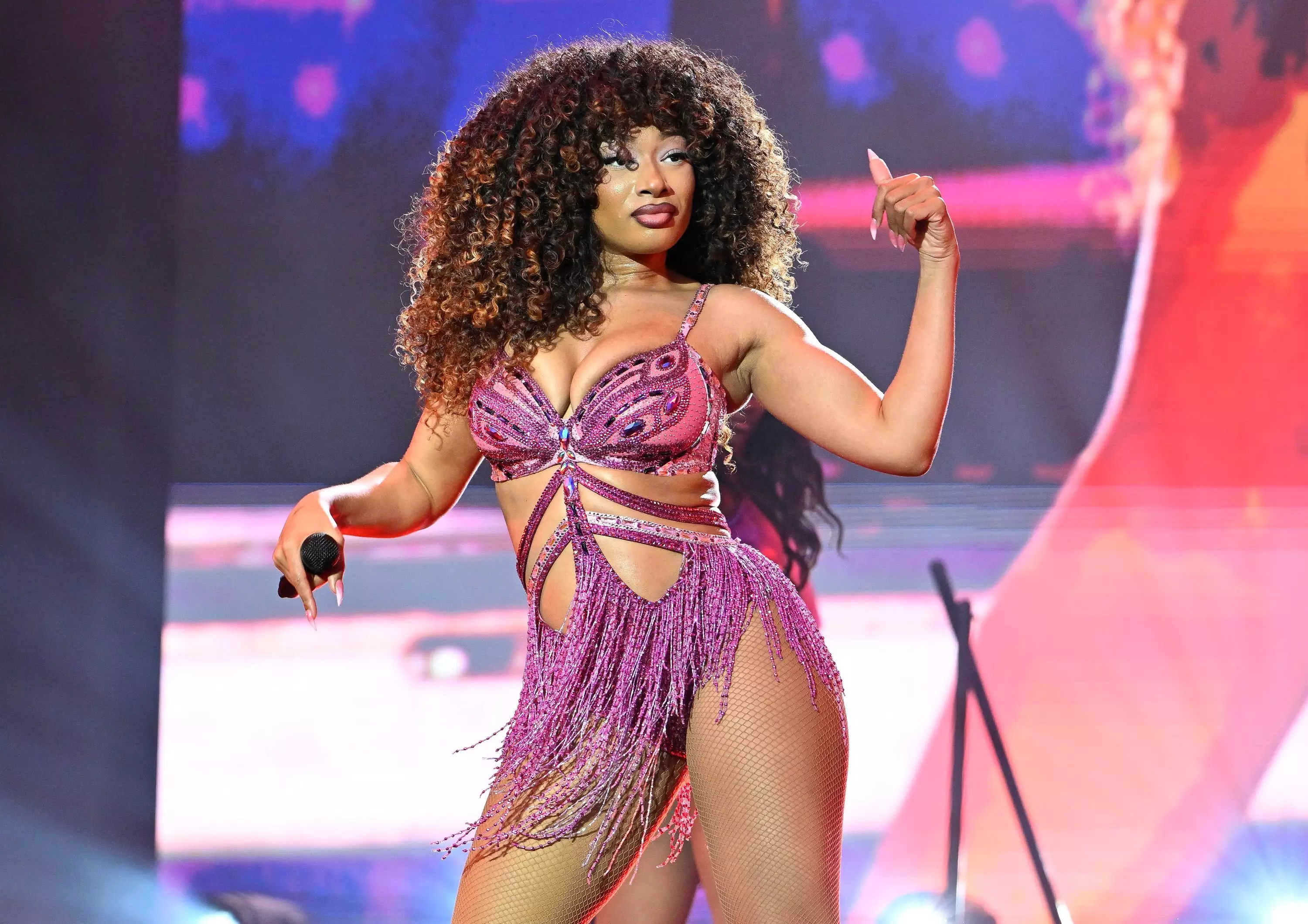
Everything We Know About Megan Thee Stallion's New Album 'Megan': Tracklist, Release Date & More
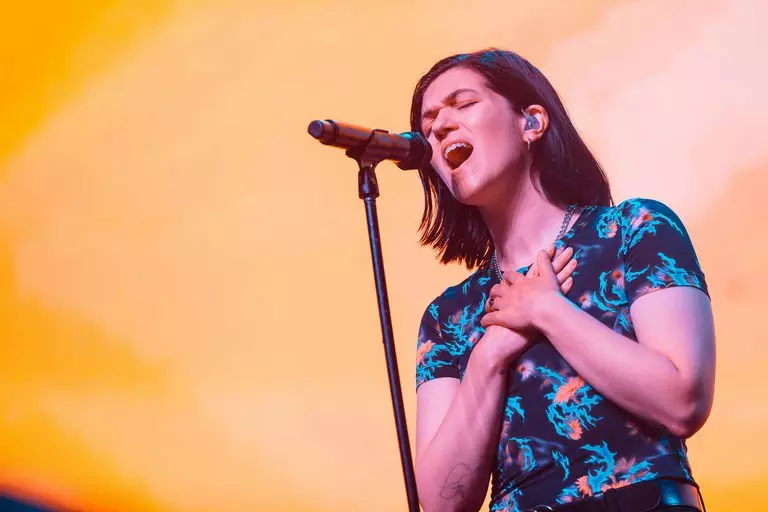
15 LGBTQIA+ Artists Performing At 2024 Summer Festivals
Inspiration Comes From Everywhere
The star and her collaborators incorporate unexpected musical influences on Megan via creative sampling. Megan Thee Stallion speeds up and flips Teena Marie's 1984 ballad "Out on a Limb" for "B.A.S." — a song she co-produced with her longtime ally LilJuMadeDaBeat. "BOA" is cleverly crafted from sounds in the first solo hit by Gwen Stefani, 2004’s "What You Waiting For?"
UGK are reunited from across the heavenly divide on the Juicy J-produced "Paper Together," with Bun B contributing new work and the late Pimp C joining in lyrical spirit. This is especially significant when considering that Juicy J produced "Intl’ Players Anthem (I Choose You)," UGK’s 2007 hit with Outkast. Juicy J also made the beats for Megan’s famous song "Hot Girl Summer."
That’s just the tip of the iceberg when it comes to samples waiting to be discovered on Megan. There are many more riffs and other musical notions that the sample bank in our brains have yet to detect.
Self-Love Is Queen
Whether she’s affirming, "I’m worthy, not worthless" on "Worthy," or literally touching herself in the auto-erotic "Down Stairs DJ" (which joins masturbation masterpieces like Divinyls’ "I Touch Myself" and Tweet’s "Oops"), Megan is grounded in songs that promote self-love as the best kind of love.
She does admit that this is sometimes a challenge to embody, as when she talks about lingering depression on "Moody Girl." But the album generally moves towards the light.
She Loves Japan
One of the big surprises on Megan is that she raps in two languages. She rhymes beautifully in Japanese on "Mamushi" with Yuki Chiba, a seasoned rapper from Japan who is influenced by the Southern swag. (Just take a look at the Memphis moves and Houston rhyme schemes of his viral song "Team Tomodachi.")
On "Otaku Hot Girl," she raps about the manga series "Naruto" and drops other anime references to show her love of Japanese pop culture.
Learn more: 10 Neo J-Pop Artists Breaking The Mold In 2024: Fujii Kaze, Kenshi Yonezu & Others
Megan's Game Is Tight
Megan is the first album to be released on Megan Thee Stallion’s own label. It follows her split from 1501 Certified Entertainment, a record label with which she was engaged in a protracted and ugly legal battle for earnings.
She now has the muscle of the major label Warner Brothers as a partner for her independent venture, Hot Girl Productions. She also recorded an Amazon Original song called "It’s Prime Day" for a commercial, as well as an exclusive Amazon edition of Megan.
It’s safe to say that this album represents a new level of business freedom and acumen for Megan Thee Stallion.
PRIDE & Black Music Month: Celebrating LGBTQIA+ & Black Voices

Tekno Talks New Music, Touring America & His "Elden Ring" Obsession

5 LGBTQIA+ Record Labels To Check Out: Get Better Records, So Fierce! And Others

Celebrate 40 Years Of Def Jam With 15 Albums That Show Its Influence & Legacy
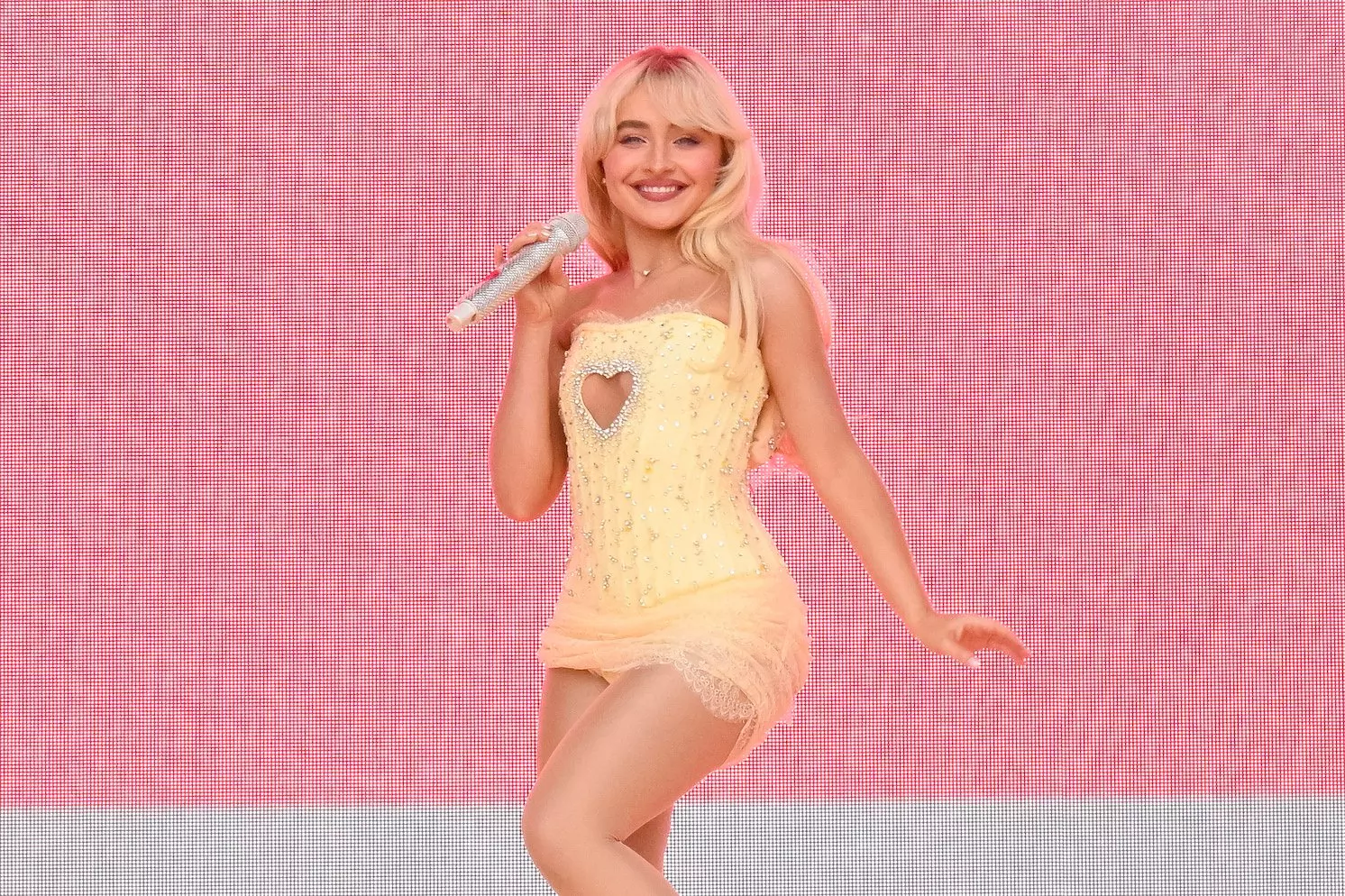
9 New Pride Anthems For 2024: Sabrina Carpenter's "Espresso," Chappell Roan's "Casual" & More
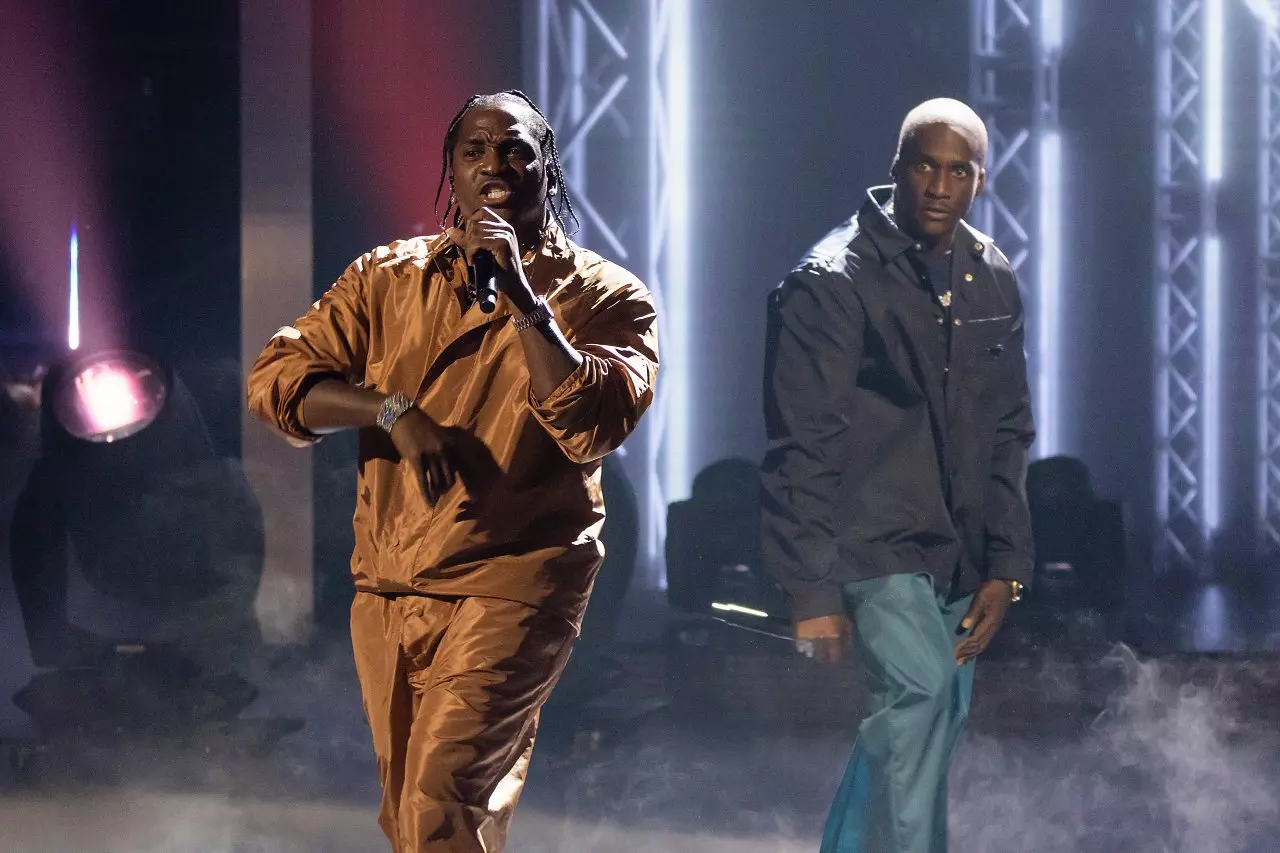
Everything We Know About Clipse's First Album In 15 Years: Pusha T And Malice Rise Again

Photo: Aitor Laspiur
interview
Omar Apollo Embraces Heartbreak And Enters His "Zaddy" Era On 'God Said No'
Alongside producer Teo Halm, Omar Apollo discusses creating 'God Said No' in London, the role of poetry in the writing process, and eventually finding comfort in the record's "proof of pain."
"Honestly, I feel like a zaddy," Omar Apollo says with a roguish grin, "because I'm 6'5" so, like, you can run up in my arms and stay there, you know what I mean?"
As a bonafide R&B sensation and one of the internet’s favorite boyfriends, Apollo is likely used to the labels, attention and online swooning that come with modern fame. But in this instance, there’s a valid reason for asking about his particular brand of "zaddyhood": he’s been turned into a Bratz doll.
In the middle of June, the popular toy company blasted a video to its nearly 5 million social media followers showing off the singer as a real-life Bratz Boy — the plastic version draped in a long fur coat (shirtless, naturally), with a blinged-out cross necklace and matching silver earrings as he belts out his 2023 single "3 Boys" from a smoke-covered stage.
The video, which was captioned "Zaddy coded," promptly went viral, helped along by an amused Apollo reposting the clip to his own Instagram Story. "It was so funny," he adds. "And it's so accurate; that's literally how my shows go. It made me look so glamorous, I loved it."
The unexpected viral moment came with rather auspicious timing, considering Apollo is prepping for the release of his hotly anticipated sophomore album. God Said No arrives June 28 via Warner Records.
In fact, the star is so busy with the roll-out that, on the afternoon of our interview, he’s FaceTiming from the back of a car. The day prior, he’d filmed the music video for "Done With You," the album’s next single. Now he’s headed to the airport to jet off to Paris, where he’ll be photographed front row at the LOEWE SS25 men’s runway show in between Sabrina Carpenter and Mustafa — the latter of whom is one of the few collaborators featured on God Said No.
Apollo’s trusted co-writer and producer, Teo Halm, is also joining the conversation from his home studio in L.A. In between amassing credits for Beyoncé (The Lion King: The Gift), Rosalía and J Balvin (the Latin GRAMMY-winning "Con Altura"), SZA ("Notice Me" and "Open Arms" featuring Travis Scott) and others, the 25-year-old virtuoso behind the boards had teamed up with Apollo on multiple occasions. Notably, the two collabed on "Evergreen (You Didn’t Deserve Me At All)," which helped Apollo score his nomination for Best New Artist at the 2023 GRAMMYs.
In the wake of that triumph, Apollo doubled down on their creative chemistry by asking Halm to executive produce God Said No. (The producer is also quick to second his pal’s magnetic mystique: "Don't get it twisted, he's zaddy, for sure.")
Apollo bares his soul like never before across the album’s 14 tracks, as he processes the bitter end of a two-year relationship with an unnamed paramour. The resulting portrait of heartbreak is a new level of emotional exposure for a singer already known for his unguarded vulnerability and naked candor. (He commissioned artist Doron Langberg to paint a revealing portrait of him for the cover of his 2023 EP Live For Me, and unapologetically included a painting of his erect penis as the back cover of the vinyl release.)
On lead single "Spite," he’s pulled between longing and resentment in the wake of the break-up over a bouncing guitar riff. Second single "Dispose of Me" finds Apollo heartsick and feeling abandoned as he laments, "It don’t matter if it’s 25 years, 25 months/ It don’t matter if it’s 25 days, it was real love/ We got too much history/ So don’t just dispose of me."
Elsewhere, the singer offers the stunning admission that "I would’ve married you" on album cut "Life’s Unfair." Then, on the very next song — the bumping, braggadocious "Against Me" — Apollo grapples with the reality that he’s been permanently altered by the love affair while on the prowl for a rebound. "I cannot act like I’m average/ You know that I am the baddest bitch," he proclaims on the opening verse, only to later admit, "I’ve changed so much, but have you heard?/ I can’t move how I used to."
More Omar Apollo News & Videos

Omar Apollo Embraces Heartbreak And Enters His "Zaddy" Era On 'God Said No'

How Danna Paola Created 'CHILDSTAR' By Deconstructing Herself

On Omar Apollo's New EP 'Live for Me,’ Limitless Experimentation Created Catharsis

Listen To GRAMMY.com's LGBTQIA+ Pride Month 2023 Playlist Featuring Demi Lovato, Sam Smith, Kim Petras, Frank Ocean, Omar Apollo & More

Omar Apollo On “Evergreen,” Growth & Longing
Given the personal subject matter filling God Said No — not to mention the amount of acclaim he earned with Ivory — it would be understandable if Apollo felt a degree of pressure or anxiety when it came to crafting his sophomore studio set. But according to the singer, that was entirely not the case.
"I feel like I wouldn’t be able to make art if I felt pressure," he says. "Why would I be nervous about going back and making more music? If anything, I'm more excited and my mind is opened up in a whole other way and I've learned so much."
In order to throw his entire focus into the album’s creation, Apollo invited Halm to join him in London. The duo set up shop in the famous Abbey Road Studios, where the singer often spent 12- to 13-hour days attempting to exorcize his heartbreak fueled by a steady stream of Aperol spritzes and cigarettes.
The change of scenery infused the music with new sonic possibilities, like the kinetic synths and pulsating bass line that set flight to "Less of You." Apollo and Halm agree that the single was directly inspired by London’s unique energy.
"It's so funny because we were out there in London, but we weren't poppin' out at all," the Halm says. "Our London scene was really just, like, studio, food. Omar was a frickin' beast. He was hitting the gym every day…. But it was more like feeding off the culture on a day-to-day basis. Like, literally just on the walk to the studio or something as simple as getting a little coffee. I don't think that song would've happened in L.A."
Poetry played a surprisingly vital role in the album’s creation as well, with Apollo littering the studio with collections by "all of the greats," including the likes of Ocean Vuong, Victoria Chang, Philip Larkin, Alan Ginsberg, Mary Oliver and more.
"Could you imagine making films, but never watching a film?" the singer posits, turning his appreciation for the written art form into a metaphor about cinema. "Imagine if I never saw [films by] the greats, the beauty of words and language, and how it's manipulated and how it flows. So I was so inspired."
Perhaps a natural result of consuming so much poetic prose, Apollo was also led to experiment with his own writing style. While on a day trip with his parents to the Palace of Versailles, he wrote a poem that ultimately became the soaring album highlight "Plane Trees," which sends the singer’s voice to new, shiver-inducing heights.
"I'd been telling Teo that I wanted to challenge myself vocally and do a power ballad," he says. "But it wasn't coming and we had attempted those songs before. And I was exhausted with writing about love; I was so sick of it. I was like, Argh, I don't want to write anymore songs with this person in my mind."
Instead, the GRAMMY nominee sat on the palace grounds with his parents, listening to his mom tell stories about her childhood spent in Mexico. He challenged himself to write about the majestic plane tree they were sitting under in order to capture the special moment.
Back at the studio, Apollo’s dad asked Halm to simply "make a beat" and, soon enough, the singer was setting his poem to music. (Later, Mustafa’s hushed coda perfected the song’s denouement as the final piece of the puzzle.) And if Apollo’s dad is at least partially responsible for how "Plane Trees" turned out, his mom can take some credit for a different song on the album — that’s her voice, recorded beneath the same plane tree, on the outro of delicate closer "Glow."
Both the artist and the producer ward off any lingering expectations that a happy ending will arrive by the time "Glow" fades to black, however. "The music that we make walks a tightrope of balancing beauty and tragedy," Halm says. "It's always got this optimism in it, but it's never just, like, one-stop shop happy. It's always got this inevitable pain that just life has.
"You know, even if maybe there wasn't peace in the end for Omar, or if that wasn't his full journey with getting through that pain, I think a lot of people are dealing with broken hearts who it really is going to help," the producer continues. "I can only just hope that the music imparts leaving people with hope."
Apollo agrees that God Said No contains a "hopeful thread," even if his perspective on the project remains achingly visceral. Did making the album help heal his broken heart? "No," he says with a sad smile on his face. "But it is proof of pain. And it’s a beautiful thing that is immortalized now, forever.
"One day, I can look back at it and be like, Wow, what a beautiful thing I experienced. But yeah, no, it didn't help me," he says with a laugh.
Latest News & Exclusive Videos

6 Takeaways From Megan Thee Stallion's 'Megan': Snakes, Shots & Self-Assurance
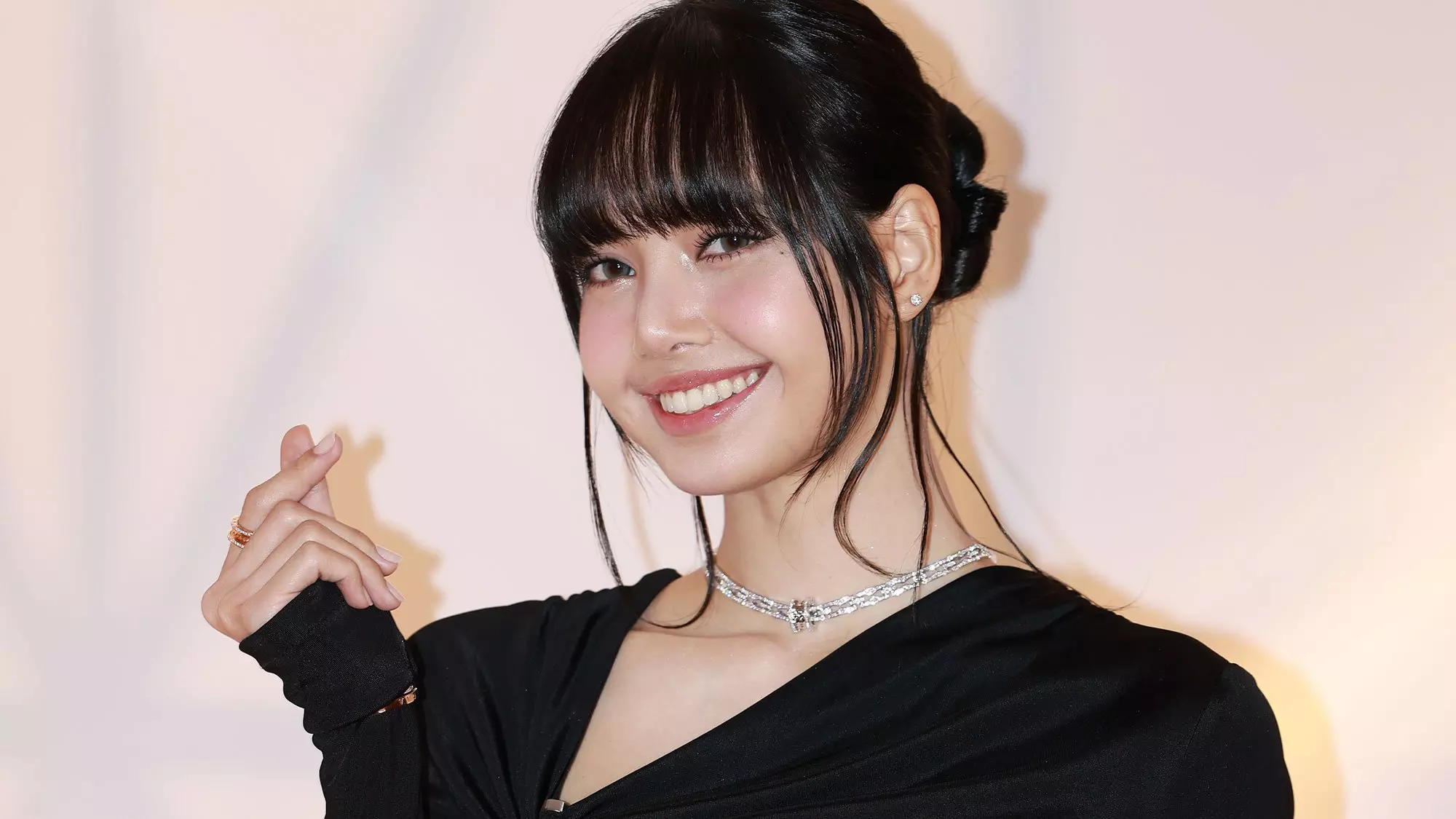
New Music Friday: Listen To New Songs From LISA From Blackpink, Lil Nas X, Kelsea Ballerini, MC Lyte & More
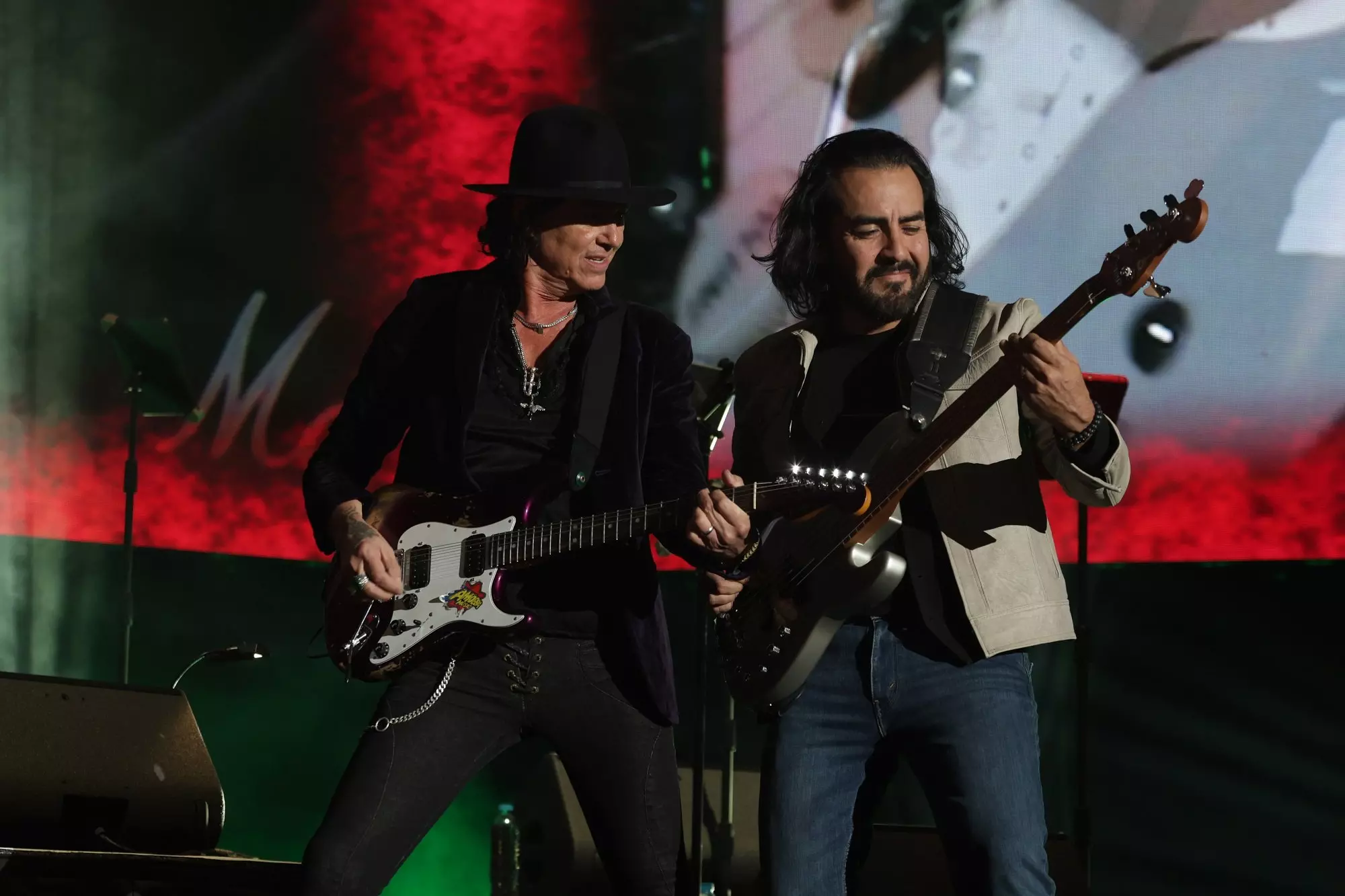
Revisiting 'El Nervio Del Volcán' At 30: How Caifanes' Final Album Became A Classic In Latin American Rock

Watch Prince’s GRAMMYs Highlights
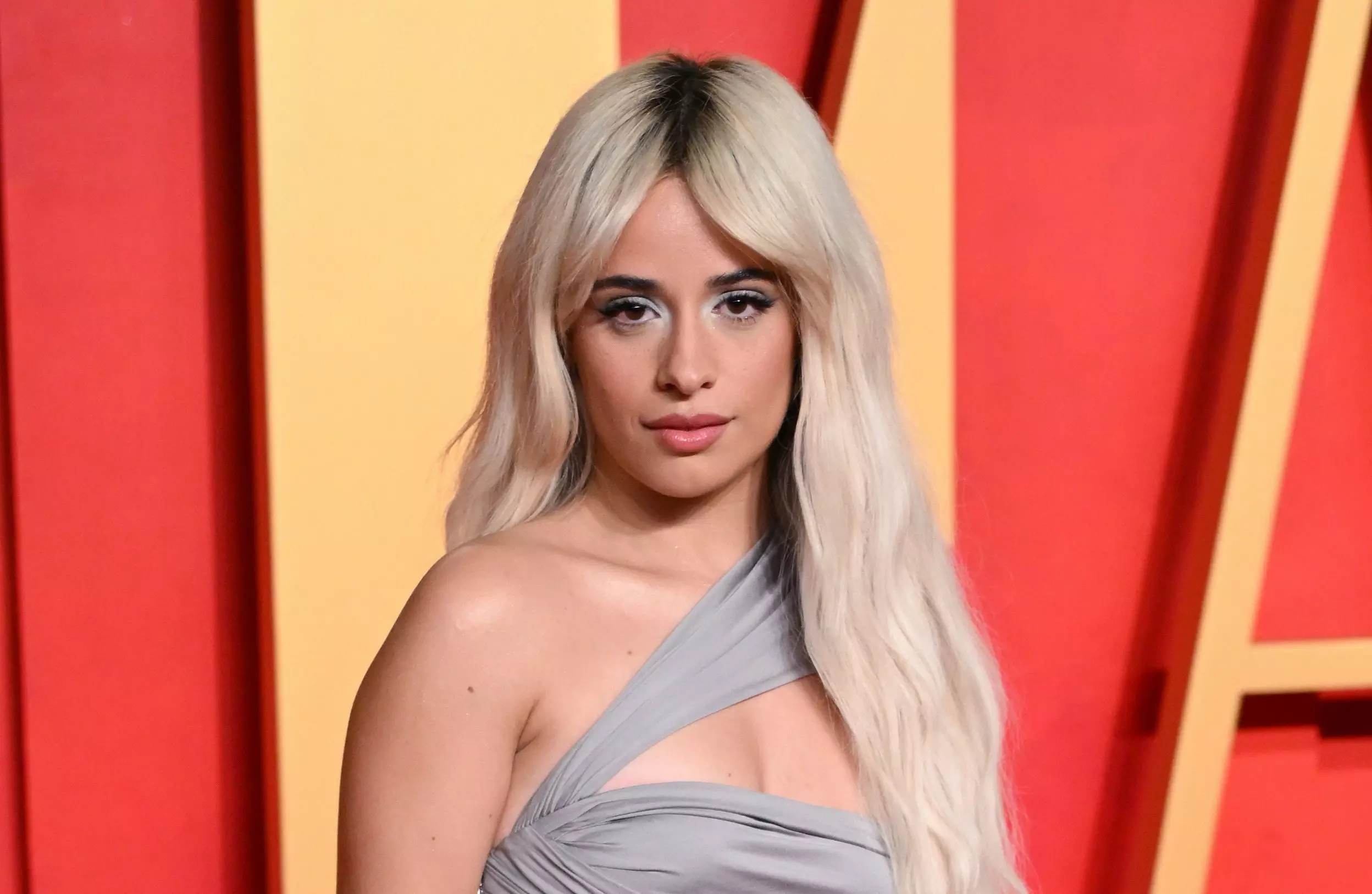
Camila Cabello's Sonic Evolution To 'C, XOXO': How She Went From Pop Princess To Club Star
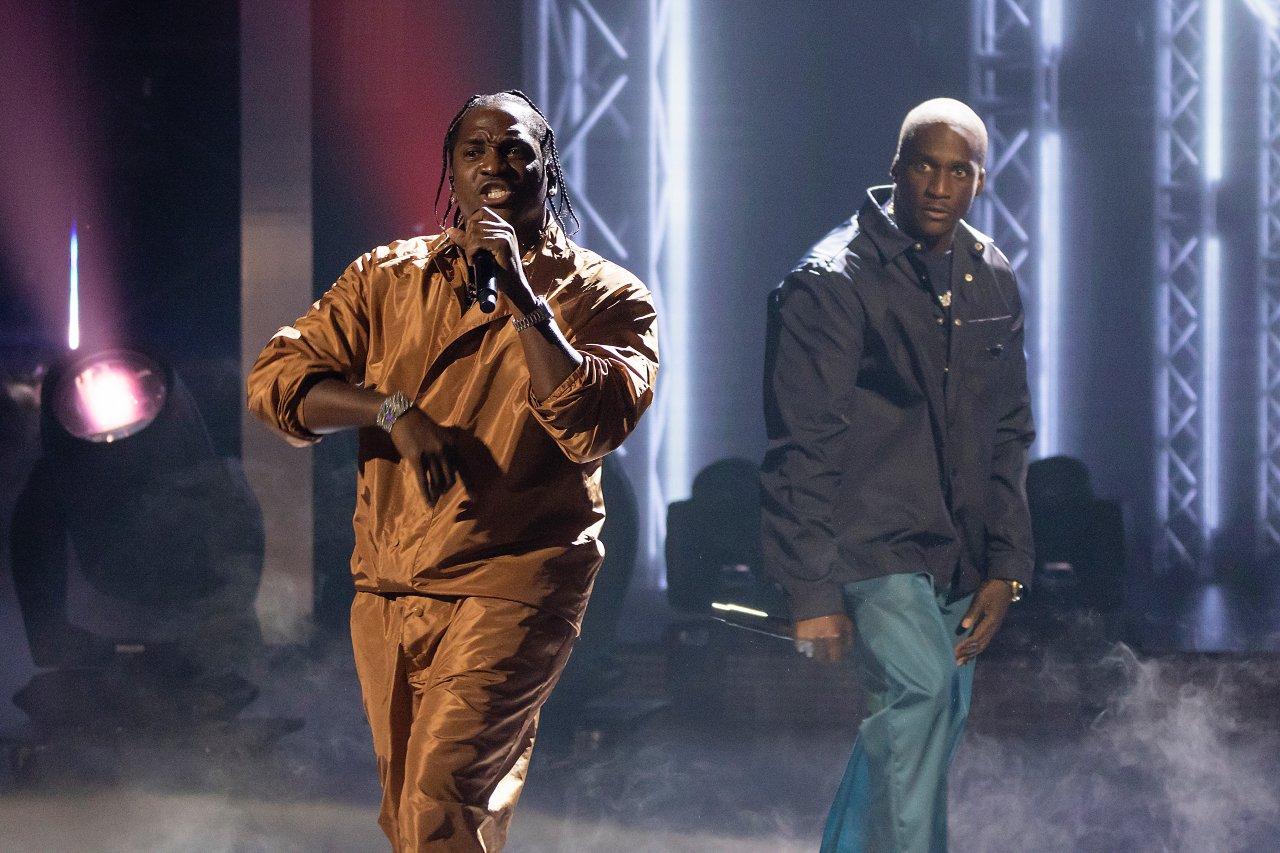
Photo: Terence Rushin/Getty Images
news
Everything We Know About Clipse's First Album In 15 Years: Pusha T And Malice Rise Again
While there's no title or release date for the new Clipse album, brothers Pusha T and Malice have teased the essence of the project, including a preview of their first new song, "Birds Don’t Sing," since 2009.
Legendary Virginia Beach rap duo Clipse have mostly been on ice since 2009's Til the Casket Drops — and that decade and a half off ends now.
The duo, composed of brothers and rap phenoms Pusha T and Malice, is back with a new, John-Legend-featuring song, "Birds Don't Sing," from a reunion project whose title has yet to be disclosed. Listen to a preview of the new song, their first new track as the Clipse since 2009, below.
It's bracing to hear purveyors of witty, sneakily profound coke raps get real about the deaths of their parents: "Lost in emotion, mama's youngest / Tryna navigate life without my compass," King Push raps at the outset. "Some experience death and feel numbness / But not me, I felt it all and couldn't function.”
It only gets realer from there: "You told me that you loved me, it was all in your tone / 'I love my two sons' was the code to your phone," Malice raps in his verse. If "Birds Don't Sing" is any indication, Clipse's first album in forever will be illuminating indeed.
We don't know much about the "Grindin'" hitmakers' reunion album, other than what Pusha T and Malice revealed in a wide-ranging Vulture interview. But for hip-hop fans, the breadcrumbs they dropped are enticing indeed.
It Will Reflect The Clipse's Maturation
Pusha T is vocal about hating the Pharrell-produced Til The Casket Drops, which has always left their story hanging. They seem to be all in on this LP — one that's designed on their own terms.
"I think the album shows the supreme maturation of a rap duo," said Push. "I think this is where you get the difference between taste and filler. This music is curated. This is a high taste-level piece of work.
"You can only have that level of taste when you have the fundamentals down to a science," he continued. "I think it's been definitely missing. Then there's the competitive aspect." Added Malice: "This is smart basketball. It's fundamentals."
Read more: For The Record: How Clipse's Lord Willin' Established Virginia's Foothold In Rap
Pharrell Williams Produced The Entire Album
Despite Pusha T's reservations about Til The Casket Drops, Pharrell Williams has been an integral part of the Clipse's operation since the beginning — and he returns to produce the new project.
"Pharrell producing everything is also an ode to the type of music and the type of albums we want to make," he added. "We still want to make full bodies of work. These are movies, man. These aren't just songs. This isn't just a collection of joints we went in and banged out."
Maturation Doesn't Mean Abandoning Coke Raps
As Pusha T points out in the interview — yes, they rap about selling coke, but to reduce it to that is to miss the point entirely.
"There's no way that you can listen to that level of storytelling and experience and just walk away just saying 'That's coke rap.'" Malice says. "If you just want to say that it's just crack rap, then you can't even assess what's really being said or what's going on."
Indeed, what the Clipse staked their claim on isn't off the table. In fact, it's lined up and ready.
Get Ready For A Bona Fide Clipse Era
As Pusha T stresses, this Clipse revisitation will come from multiple directions: "Appearances, touring, and a rap album of the year" are coming down the pike.
As more information about the forthcoming Clipse album flows in, keep GRAMMY.com bookmarked so you know the details — as these fraternal MCs join forces once more.
Latest Rap News & Music

6 Takeaways From Megan Thee Stallion's 'Megan': Snakes, Shots & Self-Assurance

Celebrate 40 Years Of Def Jam With 15 Albums That Show Its Influence & Legacy

Everything We Know About Clipse's First Album In 15 Years: Pusha T And Malice Rise Again

5 Iconic Moments From Megan Thee Stallion's Houston Hometown Shows
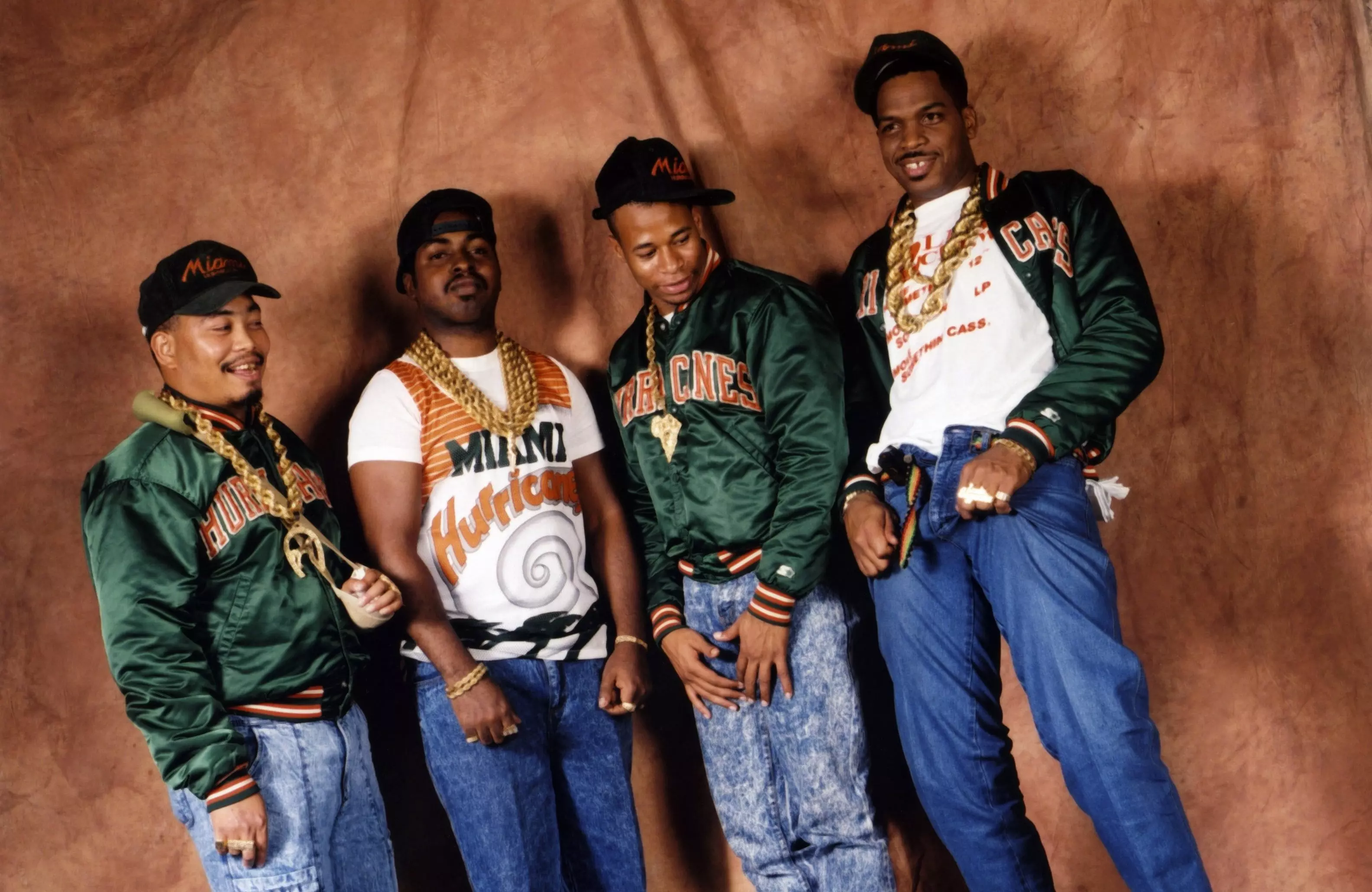
On This Day In Music: 2 Live Crew's 'As Nasty As They Wanna Be' Becomes First Album Declared Legally Obscene, Anticipates First Amendment Cases
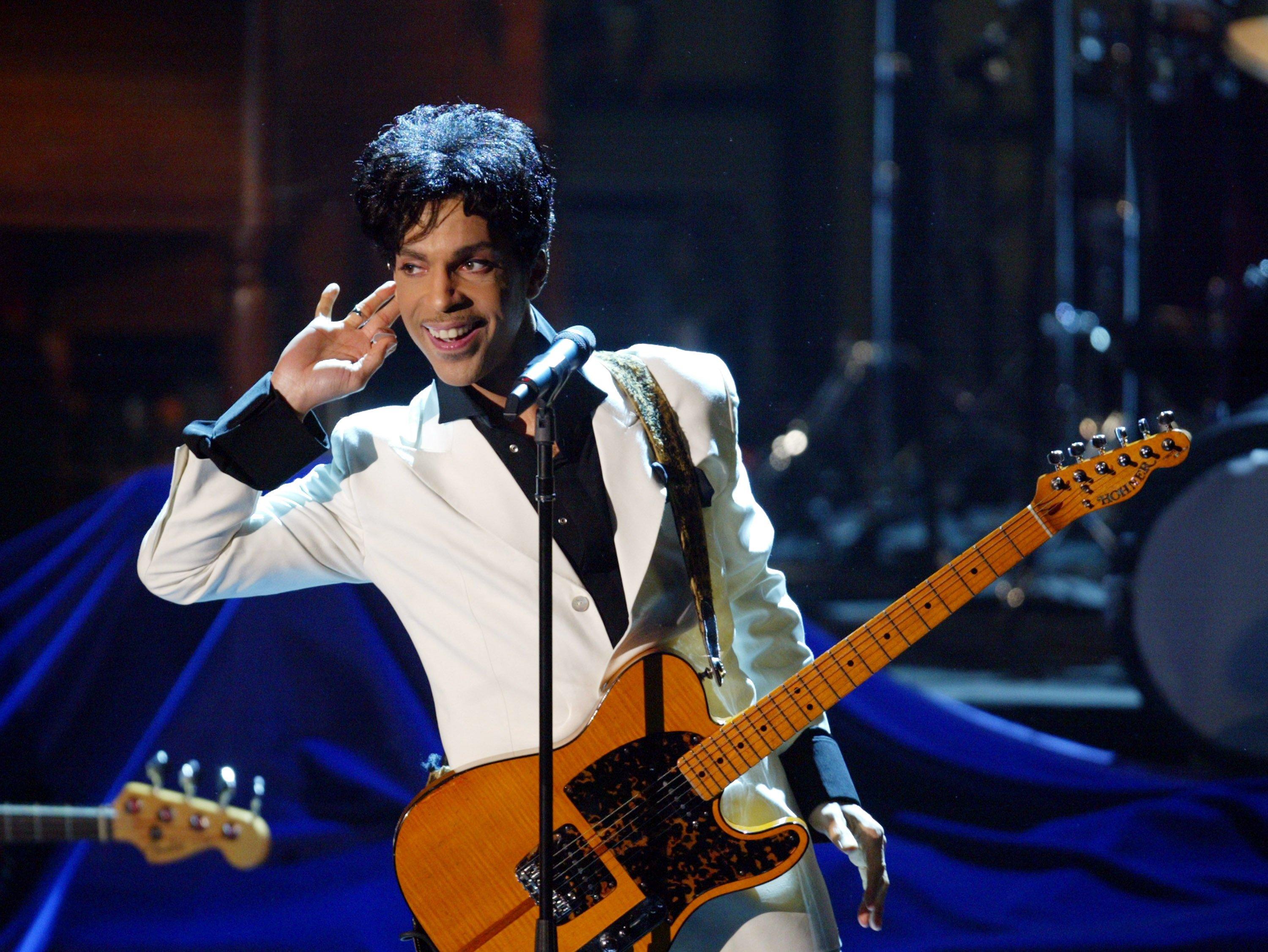
Photo: Kevin Kane/WireImage via Getty Images
list
7 Legendary Prince Performances You Can Watch Online In Honor Of 'Purple Rain'
Fans of the Purple One, unite: it's time to celebrate 40 years of 'Purple Rain.' Crank up these classic Prince performances in tribute to that epochal album, and beyond.
Have we really been living in a Princeless world for eight years? It doesn't feel like it. With every passing year, Planet Earth feels more of the magnitude of the Purple One's unbelievable accomplishments. Which includes the sheer body of work he left behind: his rumored mountain of unreleased material aside, have you heard all 39 of the albums he did release?
Yes, Prince Rogers Nelson was an impressive triple threat, and we'll likely never see his like again. In pop and rock history, some were wizards in the studio, but lacked charisma onstage, or vice versa: Prince was equally as mindblowing in both frameworks.
His iconic, GRAMMY Hall of Fame-inducted 1984 album Purple Rain — a soundtrack to the equally classic film — turns 40 on June 25. Of course, crank up that album's highlights — like "Let's Go Crazy," "When Doves Cry," and the immortal title track — and spin out from there to his other classics, like Dirty Mind, 1999, and Sign o' the Times.
To get a full dose of Prince, though, you've got to raid YouTube for performance footage of the seven-time GRAMMY winner through the years. Here are seven clips you've got to see.
Capital Centre, Landover, Maryland (1984)
Feast your eyes on Prince, the year Purple Rain came out. With guitarist Wendy Melvoin, keyboardist Dr. Fink, drummer Bobby Z., flanking him, even suboptimal YouTube resolution can't smother the magic and beauty. Check out this killing performance of Purple Rain's "I Would Die 4 U," where Prince's moves burn up the stage, with Sheila E. as much a percussion juggernaut as ever.
Read More: Living Legends: Sheila E. On Prince, Playing Salsa And Marching To The Beat Of Her Own Drum
Carrier Dome, Syracuse, New York (1985)
"Little Red Corvette," from 1982's 1999, has always been one of Prince's most magical pop songs — maybe the most magical? This performance in central New York state borders on definitive; bathed in violet and maroon, caped and cutting a rug, a 26-year-old Prince comes across as a force of divine talent.
Paisley Park, Minnesota (1999)
"I always laugh when people say he is doing a cover of this song… It's his song!" goes one YouTube commenter. That's absolutely right. Although "Nothing Compares 2 U" become an iconic hit through Sinead O'Connor's lens, it's bracing to hear the song's author nail its emotional thrust — as far fewer people have heard the original studio recording, on 1985's The Family — the sole album by the Prince-conceived and -led band of the same name.
Watch: Black Sounds Beautiful: Five Years After His Death, Prince’s Genius Remains Uncontainable
The Aladdin, Las Vegas (2002)
Let it be known that while Prince could shred with the best of them, he could equally hold down the pocket. This Vegas performance of "1+1+1=3," from 2001's The Rainbow Children, is a supremely funky workout — which also shows Prince's command as a bandleader, on top of the seeming dozens of other major musical roles he'd mastered by then.
Read More: Bobby Z. On Prince And The Revolution: Live & Why The Purple One Was Deeply Human
Rock And Roll Hall Of Fame Induction (2004)
Words can't describe Prince's universe-destroying solo over the Beatles' "While My Guitar Gently Weeps," in front of an all-star band of classic rockers including Jeff Lynne, Tom Petty, and George Harrison's son, Dhani. At song's end, Prince's guitar wails for a few more rounds, he tosses his Telecaster into the pit, and he struts offstage. We'll never see his like again.
Super Bowl Halftime Show (2007)
If you're the type of Super Bowl devotee who skips the Halftime Show, please — make time for Prince. When he digs into the trusty "Let's Go Crazy," it's hard not to follow suit. With fireworks blazing, and the Love Symbol brightly illumined, Prince arguably outshined the football game — as he tumbled through inspired cover after cover, by CCR, Dylan, and more. Naturally, he crescendoed with "Purple Rain," augmented by the drummers of the Marching 100.
Read More: Behind Diamonds and Pearls Super Deluxe Edition: A Fresh Look At Prince & The New Power Generation’s Creative Process
Coachella (2008)
At Coachella 2008, Prince offered a bounty of karaoke-style yet intriguing covers — of the B-52's ("Rock Lobster"), Sarah McLachlan ("Angel"), Santana ("Batuka"), and more. Chief among them was his eight-minute take on Radiohead's (in)famous first hit, "Creep," with a few quixotic twists, including flipping the personal pronoun I to a very Prince-like U.
"U wish U were special, / So do I," he yelps in the pre-chorus. Oh, Prince: to quote the radio-edited, de-vulgarized chorus of "Creep," you were so very special.
8 Ways Musicology Returned Prince To His Glory Days
